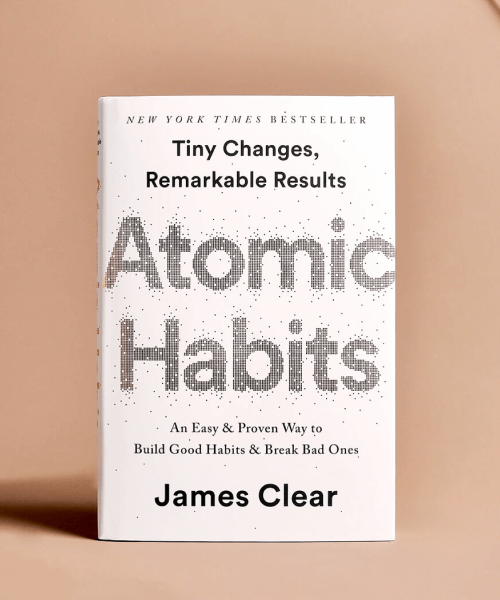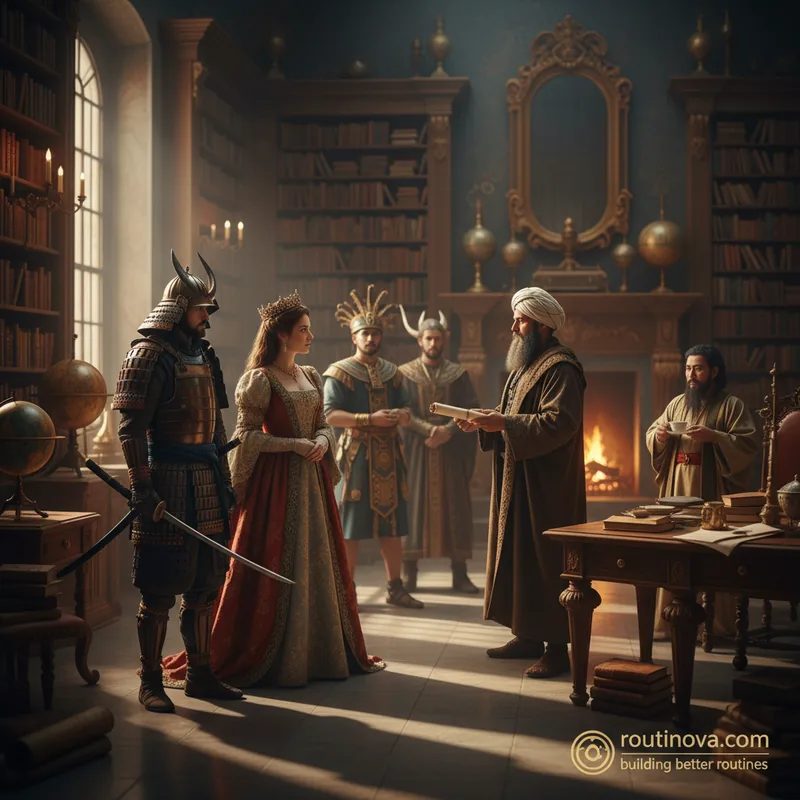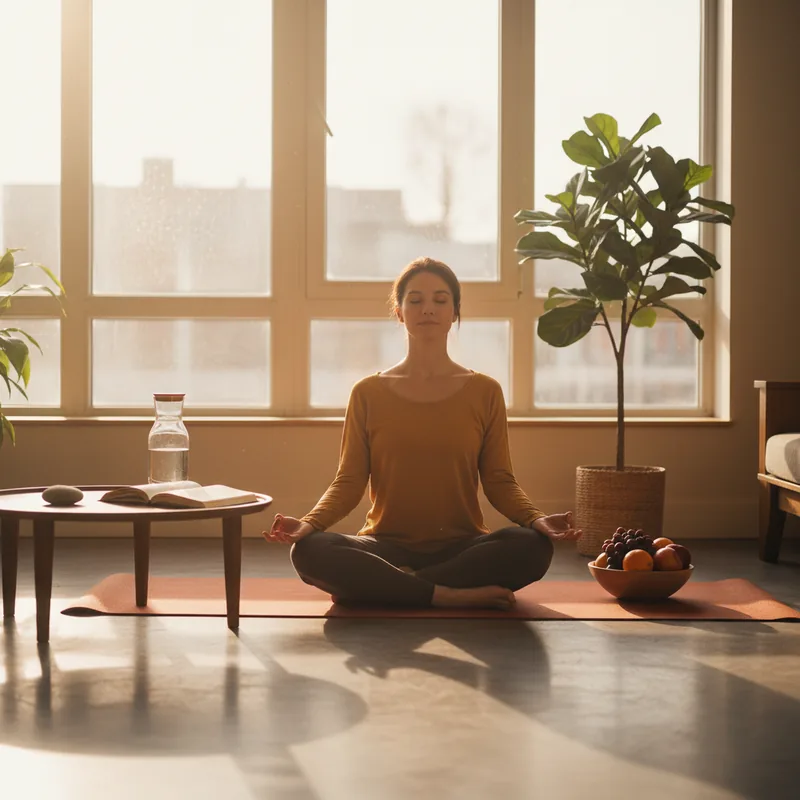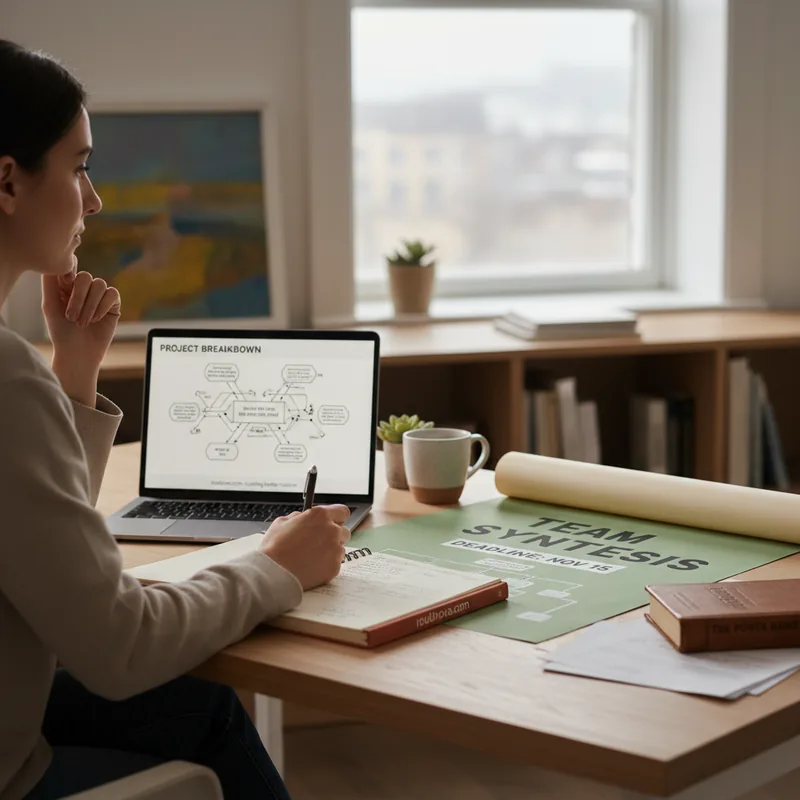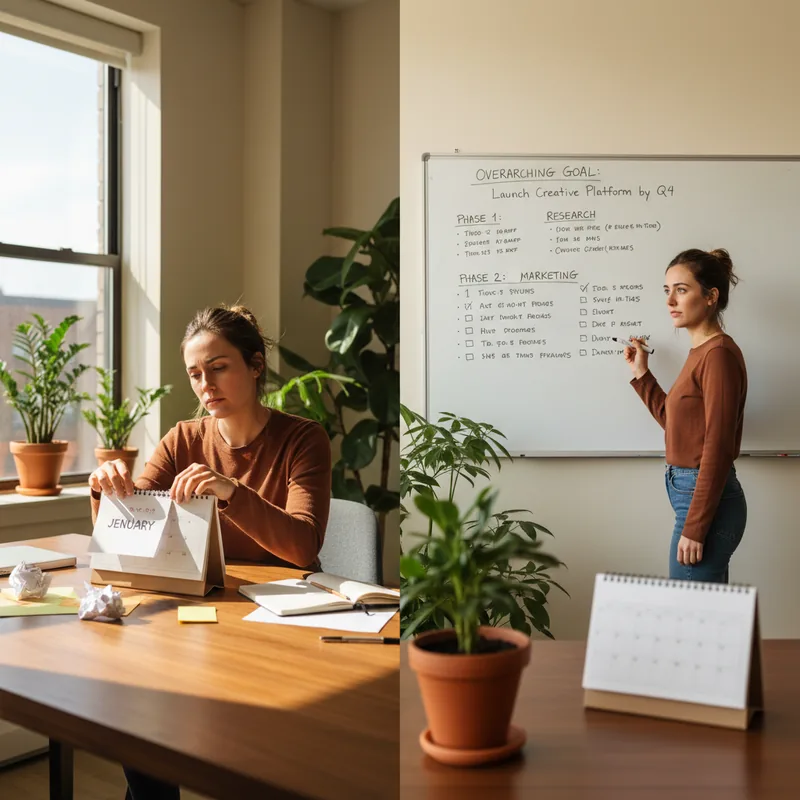The Ultimate Guide to Unlock Your Hidden Creative Genius in 2025
Do you ever feel like you're just not the "creative type"? That innovative ideas come easily to others but remain elusive for you? The truth is, creativity isn't a magical gift reserved for a select few—it's a skill anyone can develop with the right approach. Research from Harvard Business Review (2024) shows that 85% of people significantly underestimate their creative potential. This comprehensive guide will show you exactly how to unlock your hidden creative genius using science-backed methods that actually work.
Why Unlocking Your Creative Potential Matters in 2025
In today's rapidly evolving workplace, creative thinking has become one of the most valuable skills. According to World Economic Forum research, creativity ranks among the top three skills employers will prioritize through 2025. The ability to generate novel solutions and think differently isn't just for artists and writers—it's essential for problem-solving in business, technology, and daily life. Studies from Stanford's d.school indicate that professionals who regularly practice creative exercises see a 47% improvement in innovative output within six months.
What Is Creativity Really?
Let's start with a clear definition. Creativity is the process of making new connections between existing ideas or recognizing relationships between concepts that weren't previously apparent. Contrary to popular belief, creative thinking isn't about generating something entirely new from nothing. It's about taking what already exists and combining elements in fresh, unexpected ways that create value.
As James Webb Young outlined in his 1940 guide "A Technique for Producing Ideas," creative connection consistently follows a five-step process that anyone can learn and apply.
The 5-Step Creative Process Backed by Science
Understanding the creative process is crucial because it demystifies what seems like magic. Here are the five essential stages that nearly all breakthrough ideas follow:
Gather New Material Intentionally During this initial phase, you actively learn both specific information related to your challenge and general knowledge across diverse fields. Stanford researchers found that cross-disciplinary learning increases creative connections by 32% compared to deep specialization alone.
Work Through the Materials Mentally
This stage involves examining what you've learned from multiple perspectives. You experiment with fitting different concepts together, asking "what if" questions, and looking for patterns others might miss.Step Away from the Problem Completely
Here's where many people go wrong—they keep grinding when they should be resting. Neuroscience studies show that incubation periods, where you engage in completely different activities, allow your subconscious to make connections your conscious mind misses.Welcome the Insight When It Returns The "aha moment" typically arrives unexpectedly—during a shower, walk, or upon waking. MIT research indicates these insights occur when the brain's default mode network activates, allowing distant ideas to connect.
Develop Your Idea Through Feedback
No idea succeeds in isolation. You must test your concepts in the real world, gather constructive criticism, and refine accordingly. Successful creators understand that feedback isn't personal—it's fuel for improvement.
Is Creativity Really Something You're Born With?
The persistent myth of the "naturally creative" person prevents many from developing their creative abilities. According to University of California research, only about 22% of creative variance is attributable to genetic factors. The remaining 78% comes from learned behaviors, environmental influences, and deliberate practice.
Psychology professor Barbara Kerr's studies of twins revealed that while some genetic predisposition exists, the overwhelming majority of creative capacity develops through experience and training. Claiming "I'm just not creative" is essentially saying "I haven't learned how to be creative yet."
3 Powerful Creativity Lessons from History's Greatest Minds
Learning from those who've mastered creativity provides invaluable shortcuts to developing your own skills:
Anthony Trollope's 15-Minute Writing Routine The prolific author wrote over 40 books using a simple system: he wrote for 15 minutes each morning before work. His consistency—not waiting for inspiration—produced an incredible body of work. The lesson? Creative output depends more on routine than rare moments of genius.
Dr. Seuss's Creative Constraint Strategy
When challenged to write a children's book using only 50 different words, Dr. Seuss created "Green Eggs and Ham." Limitations forced innovative solutions he wouldn't have discovered with unlimited options. Constraints often enhance rather than hinder creativity.
Markus Zusak's Relentless Revision Approach
The author of "The Book Thief" rewrote the first section 150-200 times. His dedication demonstrates that creative excellence comes from willingness to iterate endlessly until the work meets your standards.
5 Proven Steps to Unlock Your Creative Genius
Step 1: Give Yourself Permission to Create Imperfect Work
Every creative journey begins with accepting that not everything you create will be brilliant. In fact, most of it won't be—and that's perfectly normal. Think of yourself as a gold miner: you must sift through tons of ordinary material to find those precious specks of gold. Research from Columbia Business School shows that people who give themselves permission to create "bad" first drafts produce 63% more innovative final products.
Step 2: Establish a Consistent Creative Schedule
Waiting for inspiration is the amateur's approach. Professionals create on a schedule whether they feel inspired or not. By committing to regular creative sessions, you train your mind to generate ideas on demand. Stanford studies found that participants who practiced creative exercises at the same time daily showed significantly greater creative improvement than those who worked only when inspired.
Step 3: Complete Something—Anything
Unfinished projects don't teach you anything. The act of completion—regardless of quality—builds creative confidence and provides valuable learning. Harvard researchers note that the psychological benefit of finishing creative work increases motivation for future projects by 41% compared to leaving work incomplete.
Step 4: Practice Non-Judgmental Awareness
Creative people inevitably judge their own work harshly. The key is acknowledging these judgments without letting them derail your progress. Studies from the University of Pennsylvania show that self-compassion practices increase creative risk-taking and output by creating psychological safety for experimentation.
Step 5: Create Accountability Through Sharing
Sharing your work creates powerful external motivation and provides essential feedback. While criticism can be uncomfortable, Boston College research indicates that creators who regularly share unfinished work improve 58% faster than those who work in isolation.
How to Find Your Hidden Creative Talent
The formula for discovering your creative genius is surprisingly straightforward: consistently do the work, complete projects, seek feedback, implement improvements, and repeat. Excellence emerges through persistence, not perfection. As the research shows, what separates highly creative people isn't innate talent but consistent practice over extended periods.
Essential Books to Deepen Your Creative Practice
- The War of Art by Steven Pressfield
- The Creative Habit by Twyla Tharp
- The Art of Possibility by Benjamin Zander
- Ignore Everybody by Hugh MacLeod
These books provide additional frameworks and inspiration for developing your creative abilities beyond the strategies covered here.
Frequently Asked Questions
Can anyone really become creative?
Yes—extensive research confirms that creativity is primarily a learned skill. While genetic factors play a small role, the overwhelming majority of creative capacity develops through practice, environment, and learned techniques.
How long does it take to see creative improvement? Most people notice significant improvements within 2-3 months of consistent practice. However, like any skill, ongoing development continues indefinitely with continued effort.
What's the biggest barrier to creativity? Fear of judgment—both from others and ourselves—is the most common creative block. Overcoming this fear through practice and self-compassion is essential for creative growth.
Key Takeaways
Unlocking your hidden creative genius requires understanding that creativity is a process, not a mystical event. By implementing the five-step creative process, establishing consistent habits, and practicing self-compassion, you can develop the creative abilities needed to generate innovative ideas and meaningful work. Remember that creative excellence emerges through persistent effort over time, not rare moments of inspiration. Start today by applying just one strategy from this guide, and you'll begin unlocking creative potential you never knew you had.
